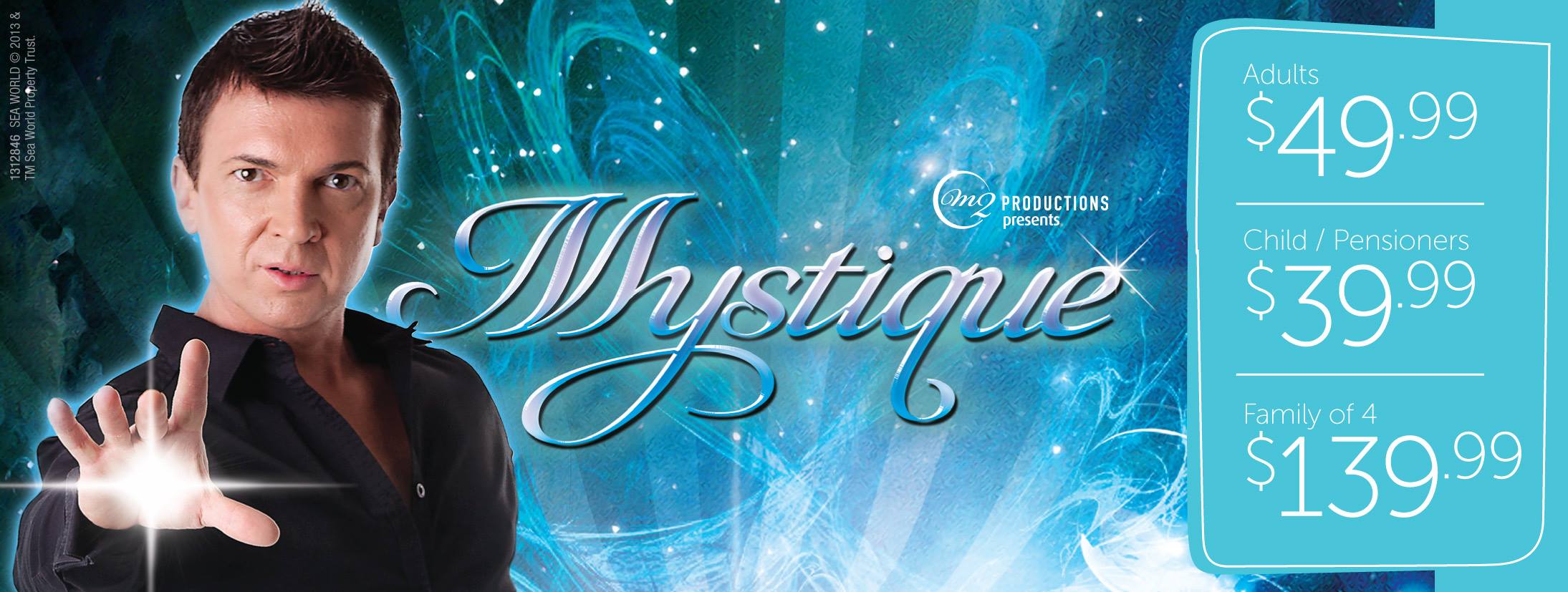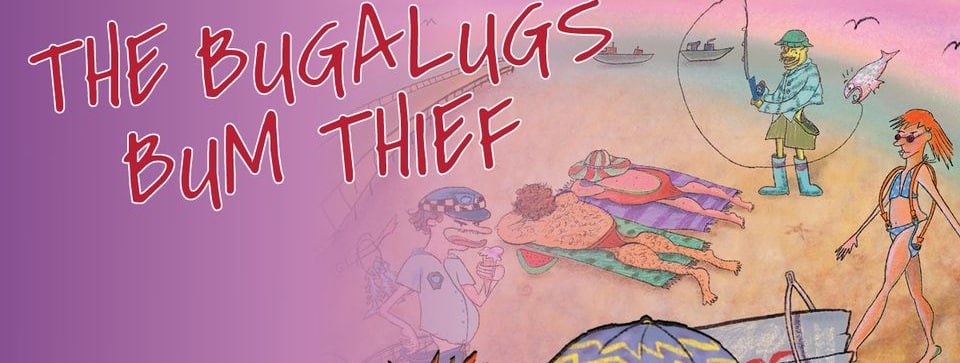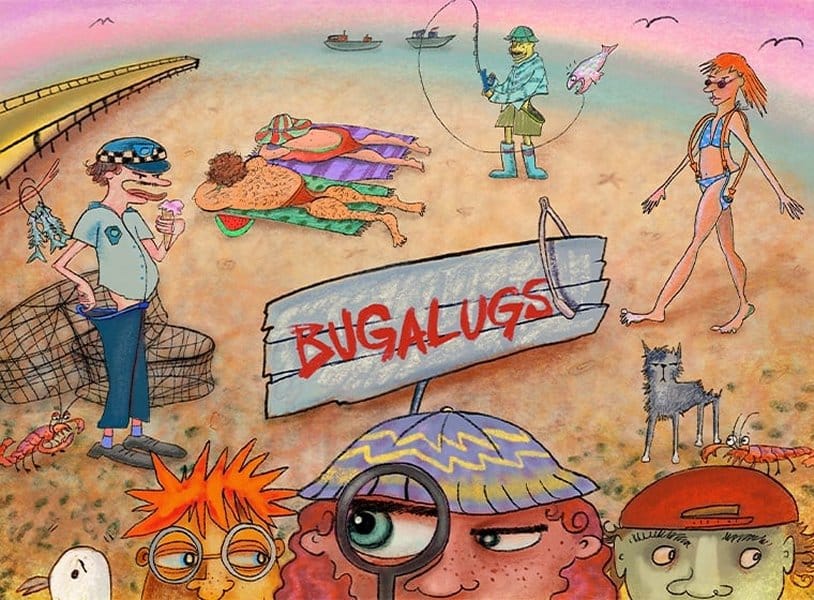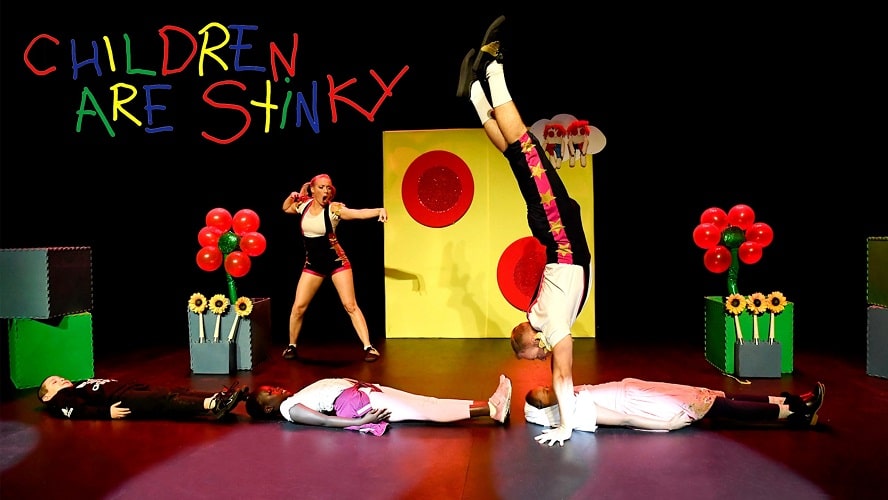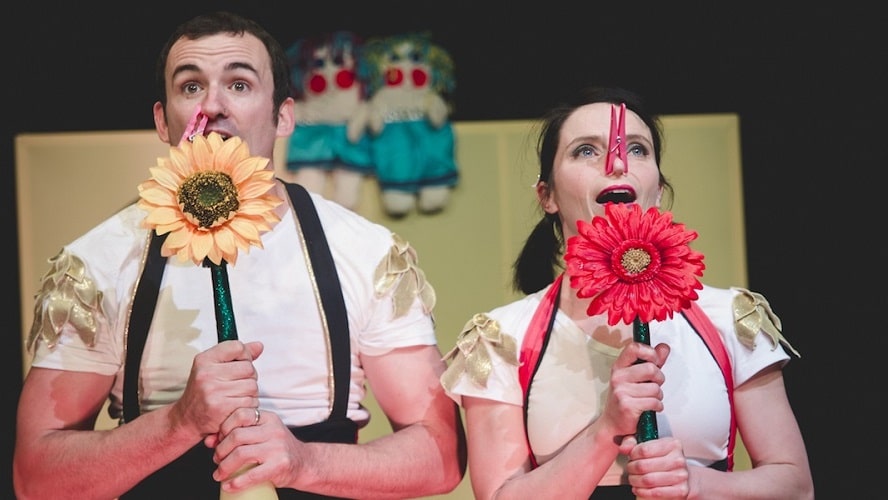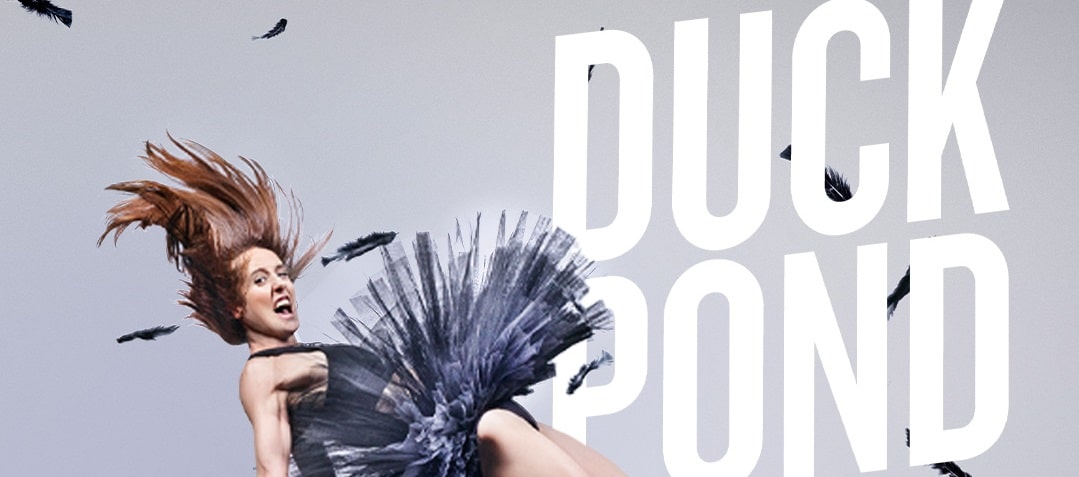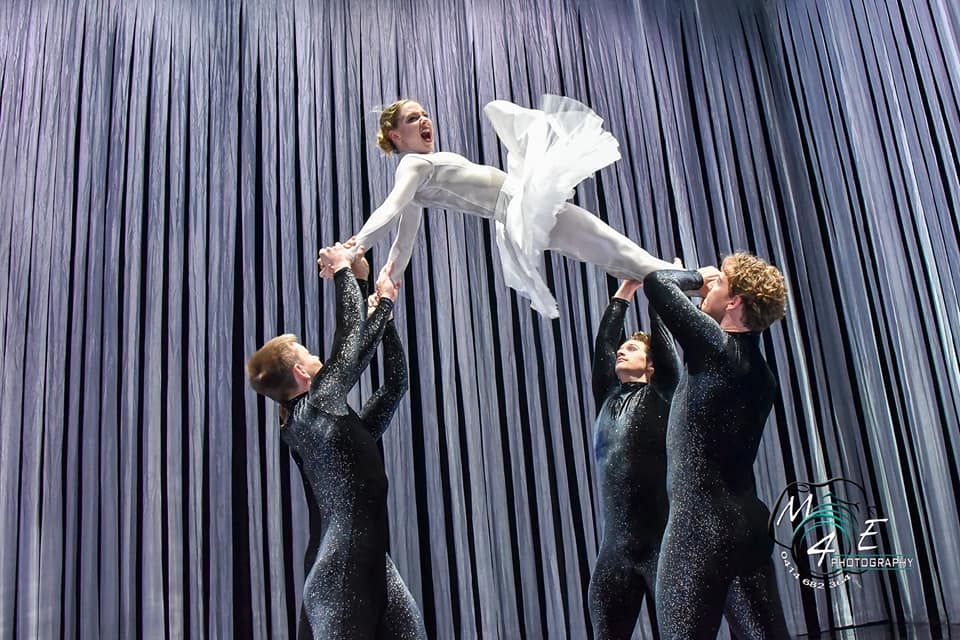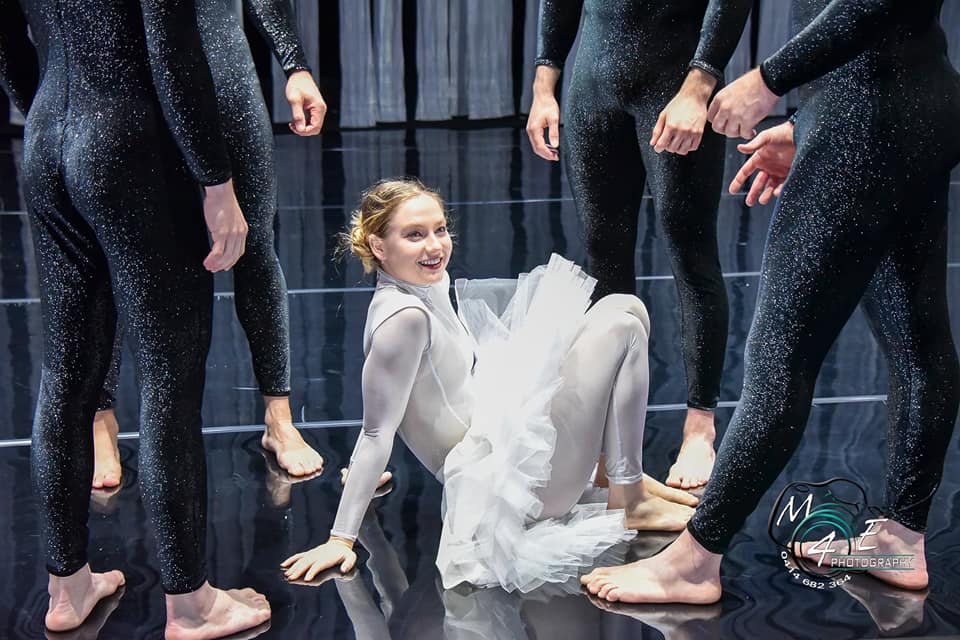Mystique: where magic meets emotion, and the impossible becomes an unforgettable reality. In a dazzling display of sleight of hand and showmanship, Michael Boyd proves that illusion is not just tricks, but an art form with a twist.
Boyd presents a world tour of magic – blending Asian exoticism, African rhythms, and Bollywood glamour, with lashings of Vegas spectacle, captivating and engaging a multigenerational crowd. From grandparents to grandchildren, everyone is on board for a thrilling journey across continents and illusions.
Featuring awe-inspiring wizardry, designed and crafted by the same team that brought us David Copperfield’s legendary shows, ‘Mystique’ blends jaw-dropping escapes, levitations and transformations with mind-blowing disappearances that leave the audience spellbound. An energetic soundtrack featuring contemporary songs and iconic film scores amplifies the energy and tension, whilst the exquisite showgirl costumes add glitz straight from The Moulin Rouge.
A great magic show combines skill and deception to evoke amazement, blurring reality and fantasy. Boyd does all of this, but amidst a haze of smoke and mirrors. Voilà! and Ta-da flair, this show refreshingly redefines the typical flash-and-dazzle mould. It breathes new life into familiar tricks thanks to Boyd’s authentic stage presence and effortless charisma, making this show accessible, unpretentious and terrific fun.
Boyd’s style is distinctly interactive, openly celebrating magic and its origins. He cleverly incorporates recognisable and much beloved classics – rings, scarves, and magic boxes – that spark nostalgia and inspire new generations. While these segments risk being cheesy, Boyd’s enthusiasm and charm make them work beautifully.
Eight-year-old Elijah joined him onstage for a delightful “Helping Hands” act, featuring a suitcase of face-paced tricks – blooming flowers, cards, and colour-changing scarves. This enchanting moment captures the essence of backyard birthday party entertainers, where the simplicity of yesteryear reigns supreme. Elijah’s face radiated pure elation as he took a bow centre stage – a future magician was born.
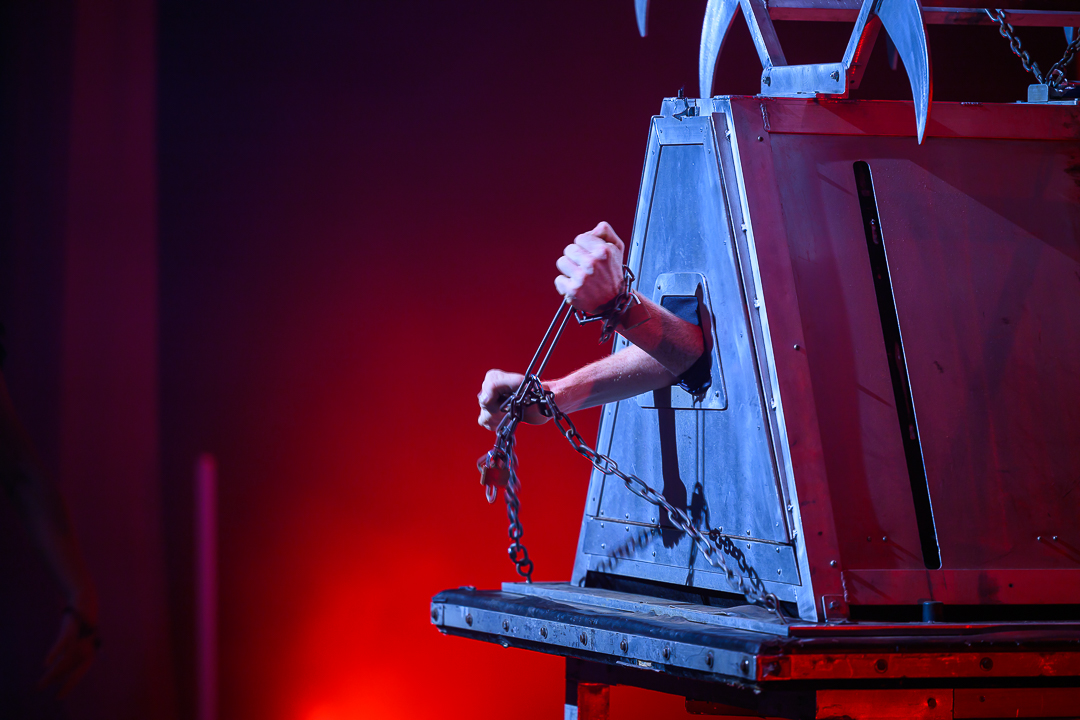
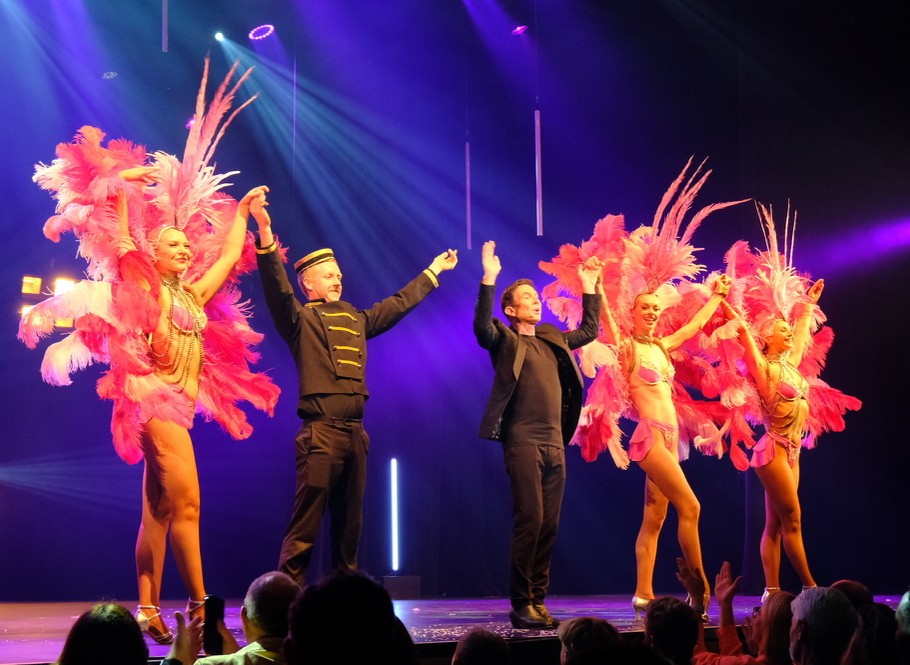
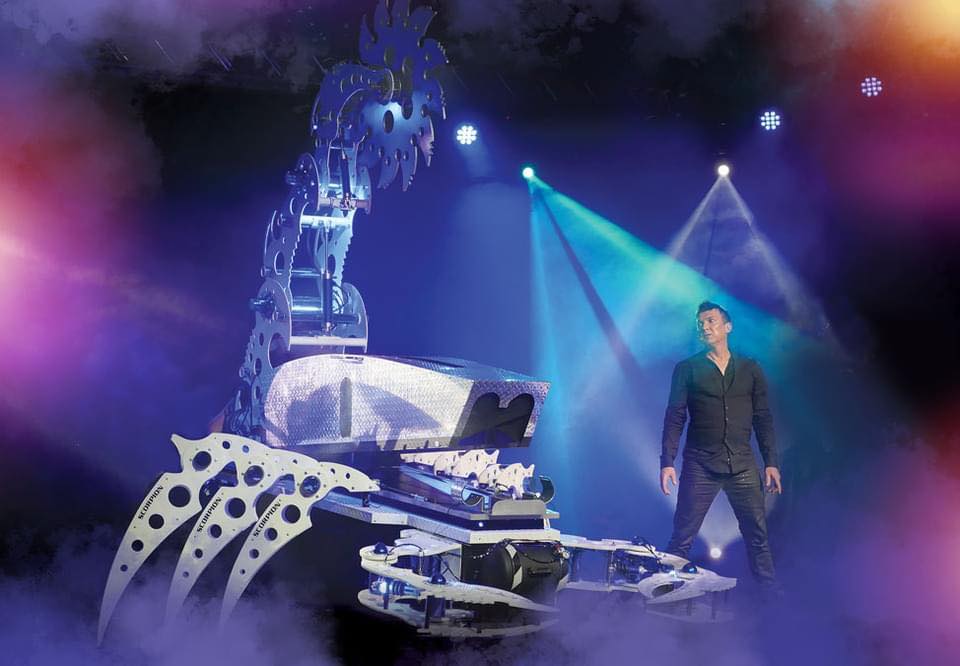
Six-year-old Katherine joined Boyd for a timeless table levitation routine. The beauty of the moment lies not in complexity, but in a child’s genuine wonder. She completely stole the show when Michael asked her how it feels to be a part of a trick. Everyone melted when she earnestly replied, “I believe in magic, and now I want to be a magician.”
The enchanting Music Box Act also whisks audiences away to a forgotten era. Beautiful ballerinas, dressed in elegant white tutus and glittering tiaras delight as they disappear and reappear. A change of tune occurs with a fabulous screwball “unplanned” moment unfolding when Suri “mishears” “banana” instead of “bandana,” revealing Boyd’s mastery of crafted comedic chaos.
Mystique seamlessly shifts between intimate, close-up magic and grand, theatrical illusions. The contrast is perfect, keeping the audience on the edge of their seats, eager for the next surprise. But it is the joy – the performer’s, the audience’s, and the magic itself – that transforms the evening into something truly special.
In a world where scepticism holds sway, magic reminds us of the power of fascination, the thrill of the unknown, and the simple pleasure of being transfixed. With the final bow, the awe lingers: we’re still baffled, but who needs answers? Mystery is the heartbeat of magic, and the soul of ‘Mystique’.
If you missed this show, don’t panic. THE CHRISTMAS SPECTACULAR, starring Michael Boyd and special guest Prinnie Stevens, will be the perfect end-of-year holiday treat at The State Theatre, 20-22 Dec 2024.
See https://www.aussietheatre.com.au/news/the-christmas-spectacular-starring-michael-boyd-and-special-guest-prinnie-stevens for details.
This review also appears on It’s On The House. Check out more reviews at Whats The Show to see what else is on in your town.
